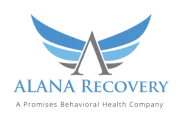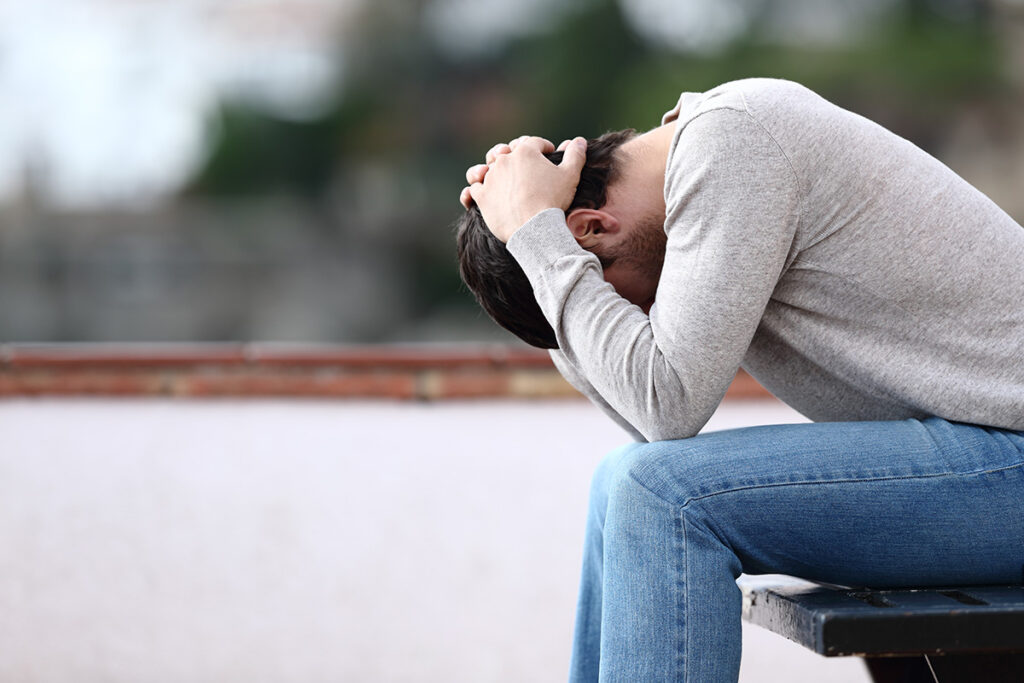If you’ve ever reacted strongly to a stressful situation and later wondered, “Why did I respond like that?”—you’re not alone. Trauma runs deep, often staying with us long after a challenging experience has passed. For many people recovering from substance use, trauma—including conditions like post-traumatic stress disorder (PTSD)—is a significant part of their journey.
At ALANA Recovery, we understand that healing from trauma is an essential first step toward rebuilding a life free from addiction. We’re here to support you every step of the way. If you or someone you care about is looking for addiction or PTSD treatment in Georgia, don’t wait to reach out. Contact ALANA Recovery online or call 770.759.7474 today. We’re here to help you build a life of strength, hope, and support.
Understanding trauma
Trauma doesn’t always come from one big, dramatic event. It can build up over time from ongoing stress, childhood neglect, violence, loss, or even witnessing someone else’s pain. Trauma isn’t just in your memories—it lives in your body and brain, shaping how you see yourself and the world around you.
The truth is that trauma is far more common than we realize. Globally, over 70% of people experience at least one traumatic event in their lifetime, and nearly 31% go through four or more. In the U.S., 90% of adults report experiencing at least one traumatic event. Women, in particular, often face higher rates of interpersonal violence, sexual assault, or physical abuse.1 But just because trauma is common doesn’t mean it’s simple. When left unresolved, it can take a toll on your mental health, your relationships, and even your ability to stay steady in recovery. Recognizing trauma is the first step toward healing—and healing is always possible.
At ALANA Recovery, we believe understanding the specifics of substance use disorders (SUDs) includes exploring trauma’s role in your journey. We offer trauma-informed care as part of our top-rated outpatient rehab in Georgia to help you start addressing what’s underneath.
What are the signs of unresolved trauma?
Unresolved trauma doesn’t always look the way you might think. It can show up in many parts of your life—your mood, body, relationships, and even how well you sleep. You might notice things like:
- Feeling constantly on edge or unable to relax
- Feeling emotionally numb or checked out, like you’re not present
- Flashbacks or intrusive thoughts that bring you back to a difficult event
- Avoiding places, people, or things that remind you of what happened
- Finding it hard to trust others or build meaningful relationships
- Dealing with physical symptoms like chronic pain, headaches, or constant fatigue
- Experiencing sudden bursts of anger, sadness, or fear that don’t seem to make sense
If any of this resonates with you, it could be your mind and body saying, “Hey, I think I need a little help here.” And that’s okay. You don’t have to navigate it alone—ALANA Recovery is here to support you every step of the way.
What are trauma responses?
A trauma response is the way your body and mind react to a situation that feels unsafe, often shaped by past experiences. These responses are your brain’s way of protecting you, even if they don’t always make sense in the present moment. The most common trauma responses include:
- Fight: Reacting with anger or becoming confrontational.
- Flight: Avoiding people, places, or responsibilities that feel overwhelming.
- Freeze: Feeling stuck, unable to make decisions or take action.
- Fawn: Putting others’ needs before your own to keep the peace or feel safe.
Trauma responses often continue long after the threat is gone, shaping behavior in ways that feel confusing or overwhelming. These reactions can be helpful, but they can cause harm over time if they become your go-to coping method.
Can trauma issues co-occur with addiction?
Absolutely. Trauma and addiction are often closely linked. For many, substance use starts as a way to cope, to numb the pain, or to escape difficult memories. But over time, what begins as a way to survive can turn into a tough cycle to break.
People living with post-traumatic stress disorder may face unique challenges, including a significantly increased likelihood of developing an SUD. Research shows that people with post-traumatic stress disorder can be up to 14 times more likely to develop an SUD compared to those without PTSD. On the flip side, for those seeking treatment for SUDs, PTSD is also common, with lifetime rates ranging between 30% and 60%.2 That’s why dual diagnosis treatment is so important. Addressing addiction without also tending to the underlying trauma often leads to relapse.
How PTSD treatment can help
Post-traumatic stress disorder treatment isn’t about “fixing” you. It’s about helping you find the tools to manage what you’ve been through and move forward with strength and clarity. Whether your trauma happened recently or years ago, healing is possible.
At ALANA Recovery, we provide care that meets you where you are. Our PTSD treatment includes:
- Trauma therapy: Proven approaches like cognitive-behavioral therapy (CBT), EMDR, and DBT to help you process and heal.
- Group and individual therapy: Supportive spaces where you can share and connect with others who understand.
- Medication-assisted treatment (MAT): For those working through both PTSD and substance use challenges.
- Dual diagnosis care: Integrated support for mental health and addiction because they often go hand in hand.
- Relapse prevention: Tools to help you handle triggers and stay on track.
We know that healing looks different for everyone. That’s why we create personalized treatment plans that respect your journey—where you’ve been and where you’re going. You’re not alone, and we’re here to help you take the next step.
Connect with ALANA Recovery and get started on PTSD treatment and addiction recovery today
Healing from trauma is hard, but you don’t have to face it alone. At ALANA Recovery, part of Promises Behavioral Health, we support you with care, understanding, and a safe space to begin your journey. Whether you’re dealing with substance use, post-traumatic stress disorder, or both, we’ll walk with you every step of the way toward a life filled with hope instead of fear.
You deserve to heal and take back your future. Call ALANA Recovery today at 770.759.7474 or reach out through our online contact form. We’re here to meet you where you are and help you get to where you want to be.
Footnotes:

